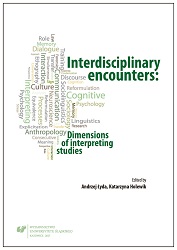“Community Interpreting – Professionalisation for Lay Interpreters”: A new initiative for the training of community interpreters in Austria
“Community Interpreting – Professionalisation for Lay Interpreters”: A new initiative for the training of community interpreters in Austria
Author(s): Elvira Iannone
Subject(s): Language studies, Language and Literature Studies, Theoretical Linguistics, Philology
Published by: Wydawnictwo Uniwersytetu Śląskiego
Keywords: community interpreting; interpreter training; lay interpreters; professionalisation
Summary/Abstract: In 2013, my colleague Katharina Redl and I developed a new course for the professionalisation of community interpreters (“Community Interpreting –Professionalisierung für LaiendolmetscherInnen im sozialen, medizinischen, psychotherapeutischen und kommunalen Bereich”). The course was first held in 2014 at the University of Innsbruck, Tyrol, and was repeated in the same year due to high demand. We were later asked to hold the course with some modifications for a group of interpreters working for the City of Wels Department for Women, Non-Discrimination and Integration in Upper Austria.This training was held from October 2014 to January 2015, and a second group of interpretersis now being trained. All training courses were open to all interested interpreters regardless oftheir background and language combination. In my chapter, I would like to highlight the factors that influence the success of training initiatives for community interpreters, taking into account problems such as the lack of regulation in many European countries, the different backgrounds of untrained interpreters and the question of what level of expertise to aim for. I will also explain how these considerations influenced the design of our course. In this I will focus on two of our main problems: first, how to plan a training course for a group of interpreters without any information about who might potentially be interested in such a course and what their level of experience might be. Second, how to convey the necessary content in a realistic timeframe but without becoming unaffordable for our target group.The objective of my chapter is to lay out the course design, taking into account the abovementioned questions, and to show how such a training programme might be implemented on a long-term basis in Austria. I will draw some conclusions regarding course content and organizational aspects, providing an outlook on complementary training programmes that Katharina Redl and I are now in the process of realising.
Book: Interdisciplinary encounters: Dimensions of interpreting studies
- Page Range: 104-120
- Page Count: 17
- Publication Year: 2017
- Language: English
- Content File-PDF

